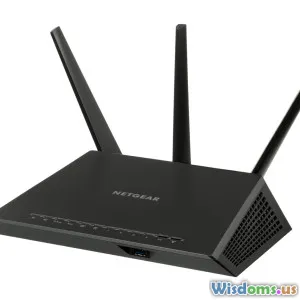
Networking Strategies for Professionals
6 min read Unlock your career potential with effective networking strategies tailored for professionals. Discover practical tips and insights. (0 Reviews)
Networking Strategies for Professionals
Networking is a critical skill in today’s professional landscape. Whether you are a seasoned professional or just starting your career, knowing how to network effectively can lead to numerous opportunities, collaborations, and advancements. This article discusses actionable networking strategies that can help you build meaningful connections and enhance your career prospects.
Understanding Networking
Before diving into strategies, it’s essential to understand what networking truly means. At its core, networking is about building relationships with people who can help you in your professional journey, whether through mentorship, advice, or job referrals. Unlike the stereotypical view of networking as simply exchanging business cards, effective networking is about creating genuine connections.
1. Define Your Networking Goals
To network effectively, start by defining what you aim to achieve. Are you looking for a mentor, seeking job opportunities, or hoping to expand your knowledge in a specific field? Knowing your goals will help you approach networking with purpose. For example, if you're looking for a mentor, you might focus on connecting with experienced professionals in your industry.
2. Leverage Social Media Platforms
In today's digital age, social media plays a crucial role in networking. Platforms like LinkedIn are designed for professional networking and can help you connect with industry leaders and peers. Here are some tips to use social media effectively:
- Optimize Your Profile: Ensure your LinkedIn profile is complete and professional. Highlight your skills, experiences, and achievements.
- Engage with Content: Share relevant articles, comment on posts, and engage with others' content to increase your visibility.
- Join Groups: Participate in industry-related groups to connect with like-minded professionals and share insights.
3. Attend Networking Events
In-person networking events, such as conferences, workshops, and meetups, provide excellent opportunities to meet professionals face-to-face. Here’s how to make the most of these events:
- Prepare Your Elevator Pitch: Have a concise introduction ready that summarizes who you are and what you do. This will help you make a memorable first impression.
- Follow Up: After meeting someone, send a follow-up message thanking them for their time and expressing your interest in staying connected.
4. Build Genuine Relationships
Networking should not feel transactional. Focus on building genuine relationships by showing interest in others. Ask questions, listen actively, and offer help when you can. For instance, if a colleague is seeking advice on a project, share your insights or resources. This reciprocity fosters trust and strengthens your network.
5. Utilize Informational Interviews
Informational interviews are a valuable tool for networking. They allow you to learn more about a particular career path or industry while building connections. Here’s how to conduct an informational interview:
- Identify Potential Contacts: Reach out to individuals in roles you aspire to or companies you admire.
- Prepare Questions: Prepare thoughtful questions about their career journey, industry insights, and advice for newcomers.
- Respect Their Time: Be mindful of their time and keep the meeting brief, typically between 20-30 minutes.
6. Follow Up and Stay Connected
Networking is not a one-time effort; it requires ongoing communication. Regularly follow up with your contacts, share updates about your career, or simply check in to see how they are doing. You can also share articles or resources that might interest them, keeping the relationship active.
7. Seek Out Mentorship
Mentorship can significantly enhance your professional development. Look for mentors who inspire you and whose career paths align with your aspirations. Don’t hesitate to ask someone you admire for guidance, and be open to learning from their experiences.
Conclusion
Networking is an invaluable skill that can open doors to countless opportunities. By implementing these strategies, you can build lasting relationships that not only support your career growth but also enrich your professional journey. Remember, effective networking is about quality over quantity—focus on creating meaningful connections, and the benefits will follow.
As you venture into your networking endeavors, remain authentic and genuine; this will resonate with others and lead to fruitful relationships throughout your career journey.
Rate the Post
User Reviews
Popular Posts





















